Best acoustic guitar picks 2025: our choice of picks for acoustic playing from Dunlop, D'Addario, and more
Get the connection between player and strings right with the best acoustic guitar picks
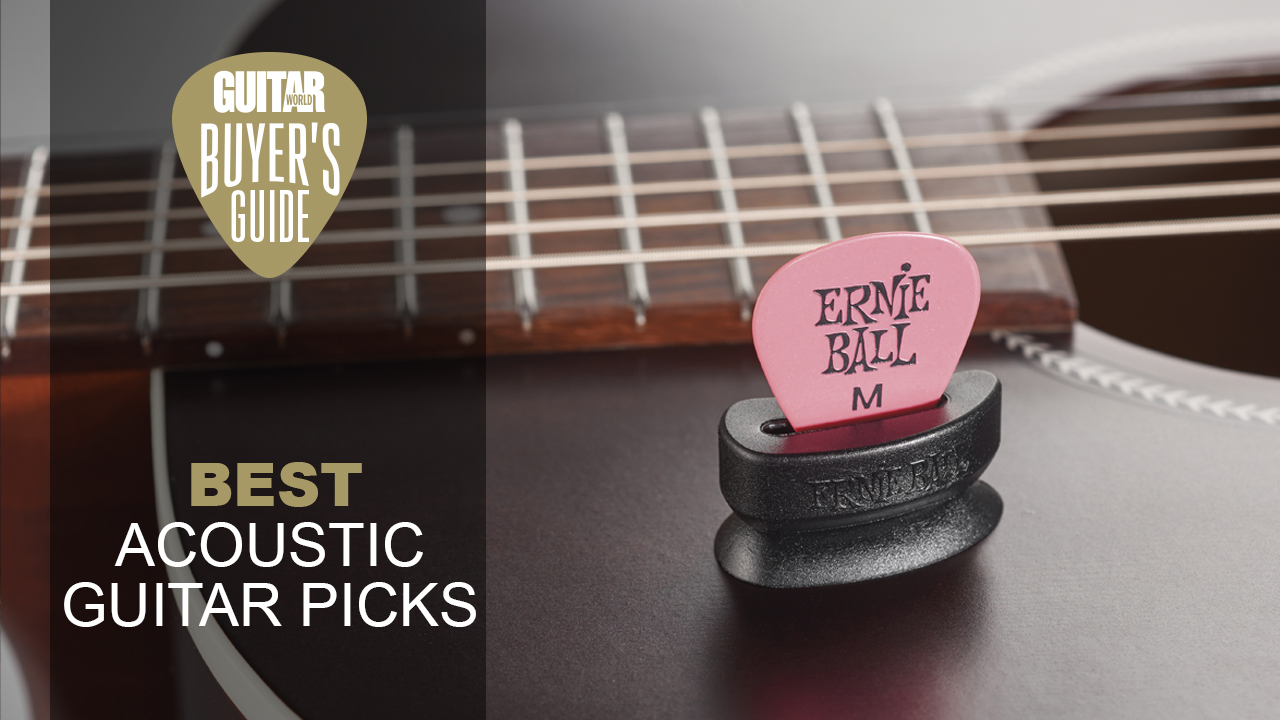
The connection between player and instrument is of paramount importance, both emotionally and physically. That point at which the two things meet plays a huge part in the sound that you hear, which is why having one of the best acoustic guitar picks really could make all the difference.
You might think it’s just a piece of plastic that you hit the strings with, and essentially it is. However, the material, thickness, shape – even how the edges are angled – can all make a difference to your tone and how you physically attack the strings.
The sound of an acoustic guitar relies so much on the movement of the strings and the wood; it’s not helped out by amplifiers or effects, so making sure you’ve got the best acoustic guitar picks for you can mean you sound and play better.
Our top picks
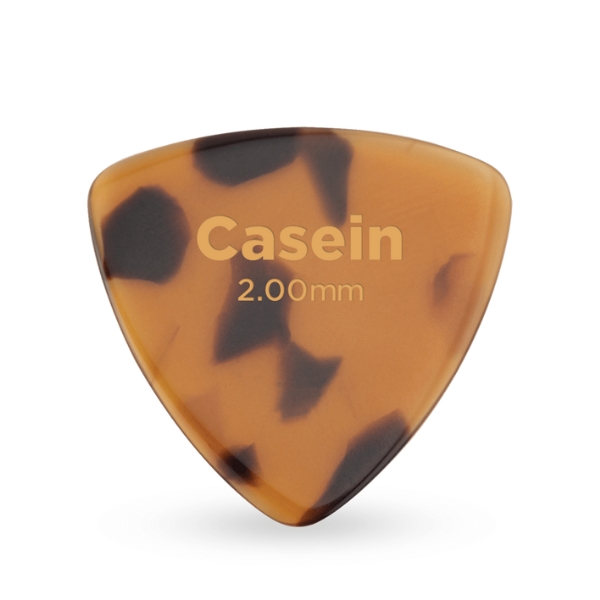
Delivering a performance that's warm and refined, we love the D’Addario Casein picks for acoustic guitars. A modern alternative to tortoise shell, the wide design makes them great for strumming chords.
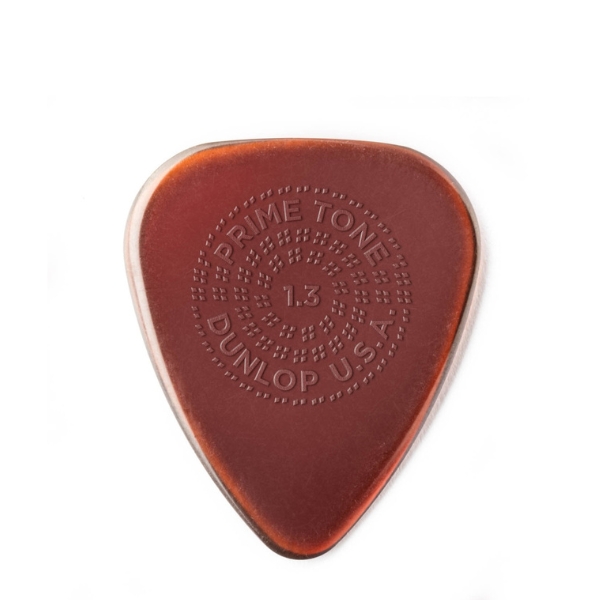
Primetone picks are nice and bright with lots of clarity and articulation. They’re good quality picks, but they’re not too costly which makes them great for beginner acoustic players.
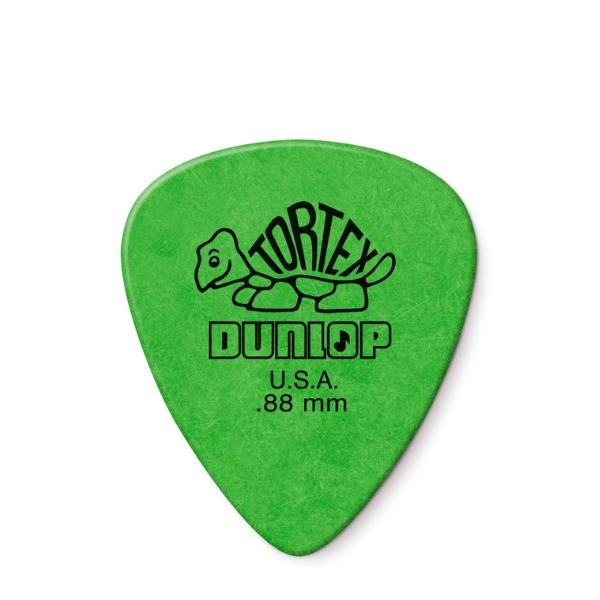
Probably the most popular picks out there, the Jim Dunlop Tortex range is everywhere. They are superb value for money and come in a variety of sizes, but we love the .88mm.
Best overall
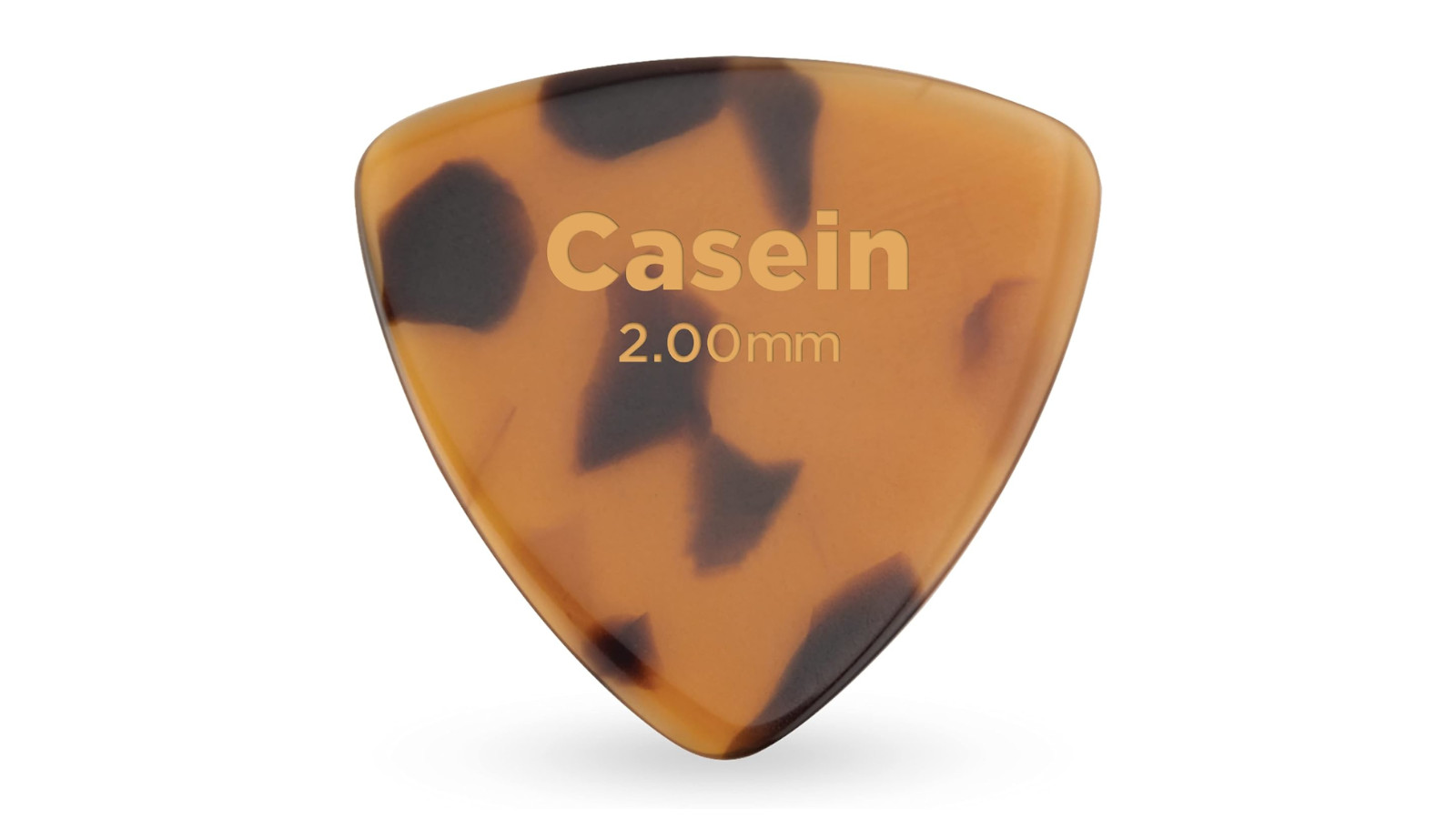
1. D’Addario Casein 346 Wide Pick
Our expert review:
Specifications
Reasons to buy
Reasons to avoid
A long time ago, actual tortoise shell was used to make picks. For obvious reasons, this has been phased out, with celluloid largely replacing them. In more recent years, however, manufacturers have started to produce a new pick made from a protein-based plastic called casein which is more like the original tortoiseshell picks, both in terms of feel and sound.
These picks are lovely and warm sounding, and can tame particularly bright-sounding instruments or fresh acoustic guitar strings. They also feature a right-handed beveled edge that can help the pick glide naturally over the strings, resulting in super smooth strumming. The embossed logo also gives it a slight grip to help you keep a hold of the pick.
Best for beginners
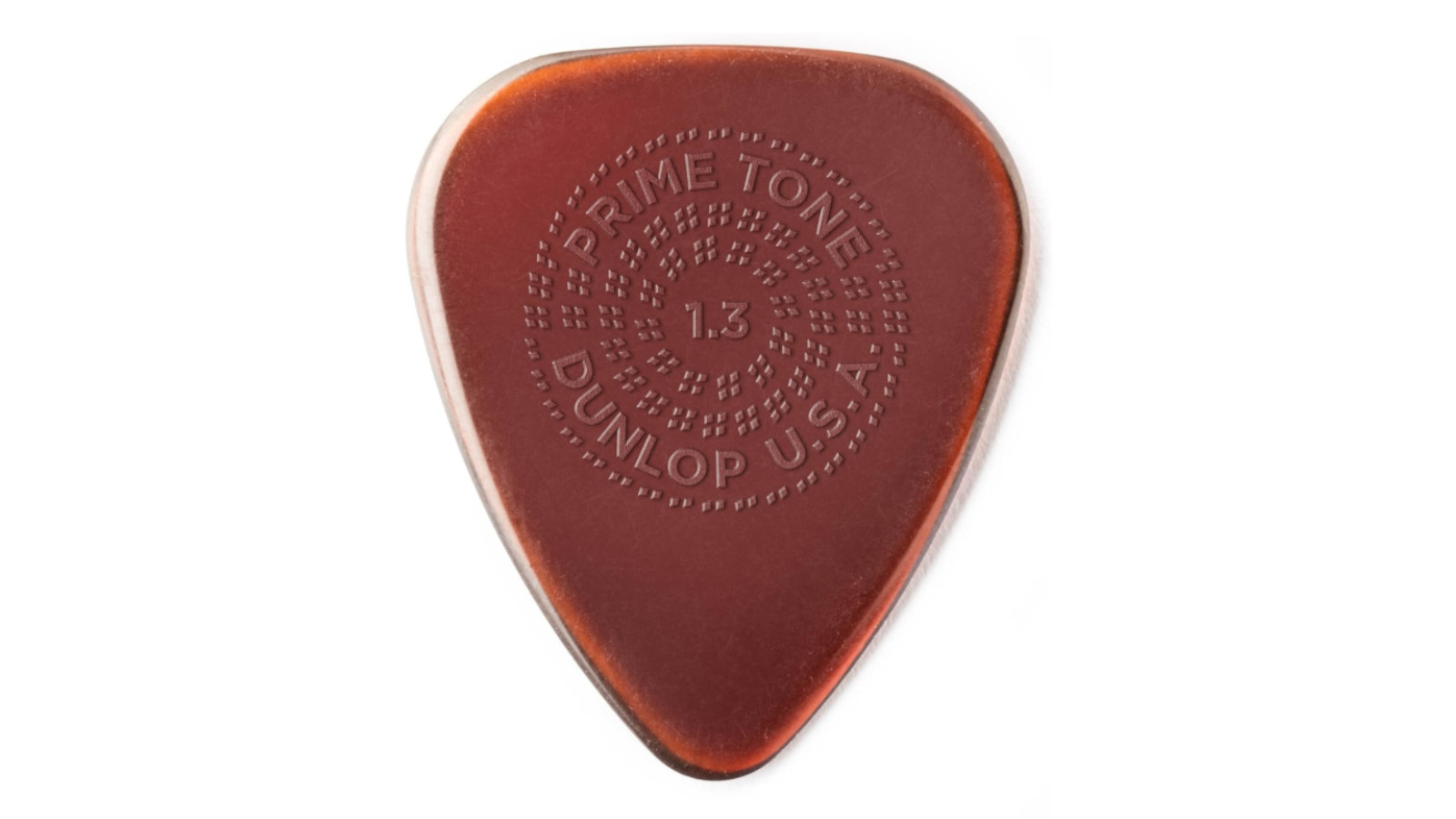
2. Jim Dunlop Primetone Standard Grip Pick 1.3mm
Our expert review:
Specifications
Reasons to buy
Reasons to avoid
These are superb acoustic guitar picks that offer excellent note definition and a comfortable playing experience. They’re made from ultex, so expect clear and bright tones with plenty of articulation.
The material makes them great for playing lead lines as you get a fast attack and great clarity, however the hand-beveled edges mean that they’ll glide over the strings nicely when you're using them for chord and strumming work too.
They’re great all-rounders, plus the grip really helps the contact between the pick and your fingers when playing on sweaty stages.
Best budget
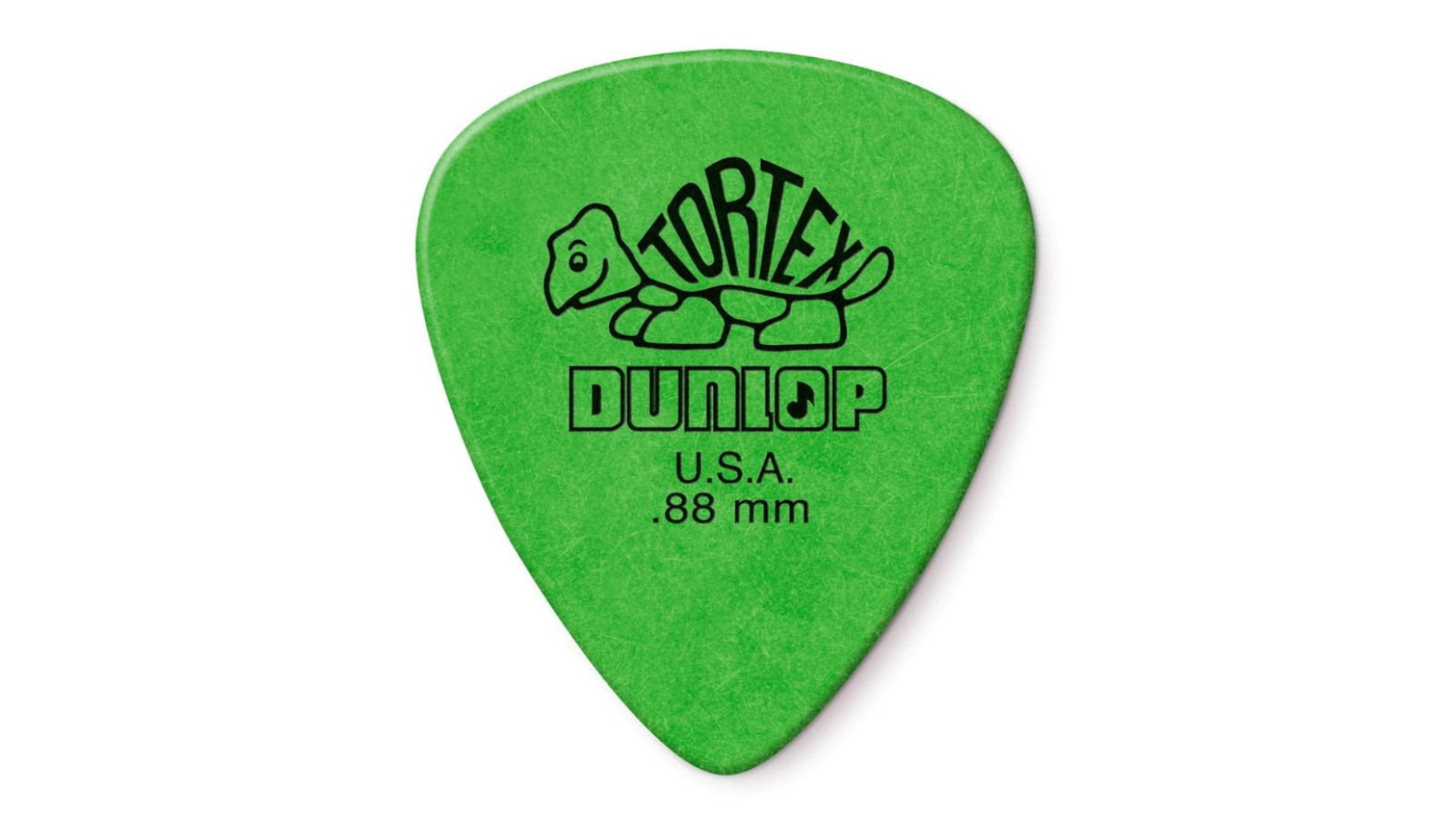
3. Jim Dunlop Tortex Standard Pick .88mm
Our expert review:
Specifications
Reasons to buy
Reasons to avoid
Possibly the most popular pick amongst any type of guitarist. The Dunlop Tortex picks are instantly recognizable from their bright colors and offer players a durable and affordable pick that works well on electric, bass and acoustic guitars alike. They’re made from delrin and provide a bright but even response with a strong attack. They’ve also got a slightly powdery feel which helps with grip.
Acoustic guitars will often be fitted with higher gauge strings than electric guitars, so having a thick enough pick will ensure that you don’t get any sort of unwanted, plasticky percussive sound when you’re strumming. That said, we're huge advocates of being as comfortable as possible when playing, so if you play better with thin picks, then go for it!
Best durability
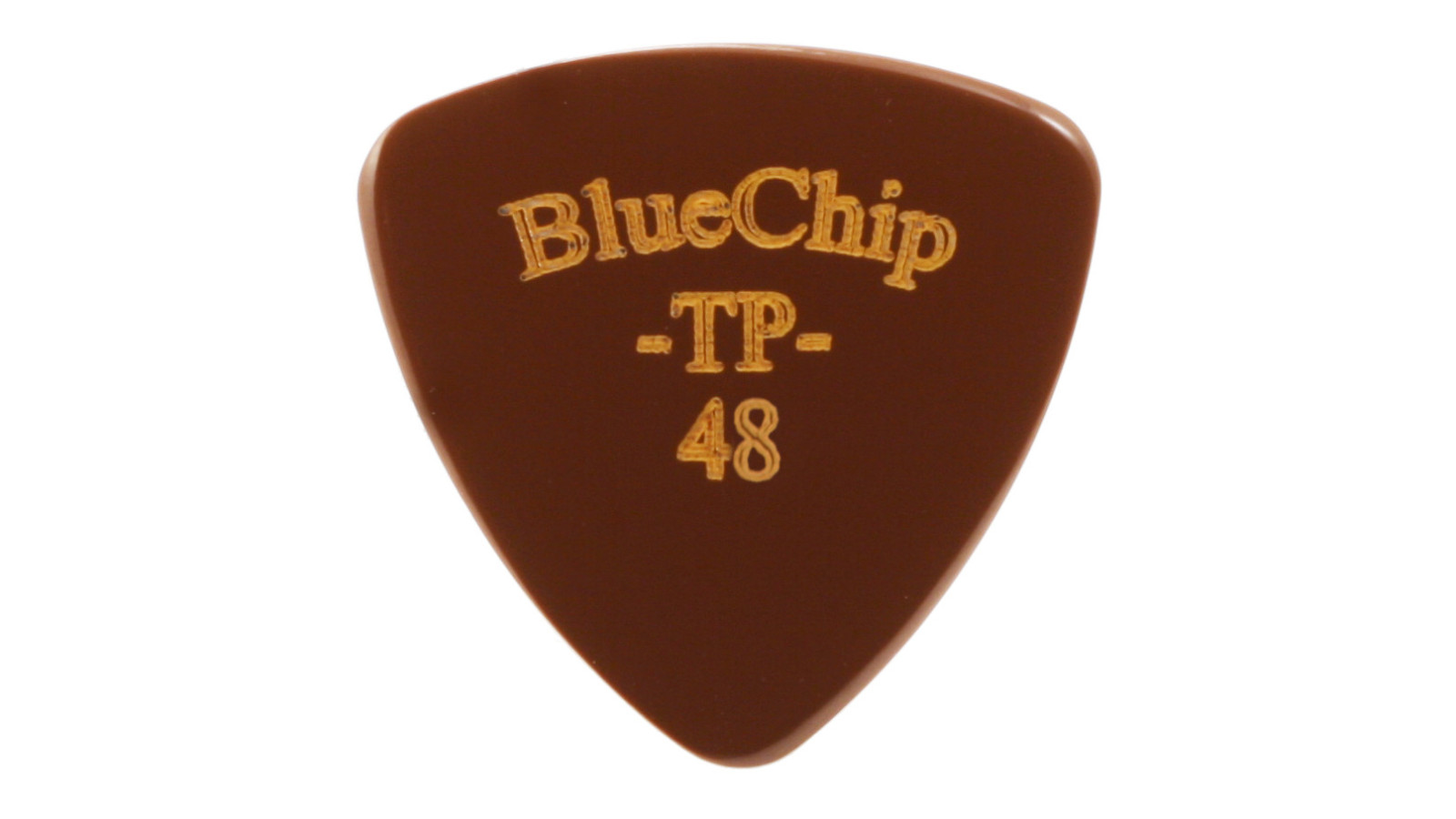
4. Blue Chip TP48
Our expert review:
Specifications
Reasons to buy
Reasons to avoid
These are favored by many pro acoustic players as they can help reduce that plastic pick noise that you might hear with other picks. They tend to be darker, warmer and mellower sounding than something like celluloid or ultex, so might not be for everyone.
There is a range of shapes and thicknesses available, but it’s worth noting that these picks are quite stiff – that’s part of the reason why people love them. This TP48 is a nice wide triangle so works well for strumming and lead work. You can also choose your bevel (done by hand) depending on whether you are right or left handed.
These are also expensive, so it’s worth knowing what sort of pick you like before committing!
Best for strumming
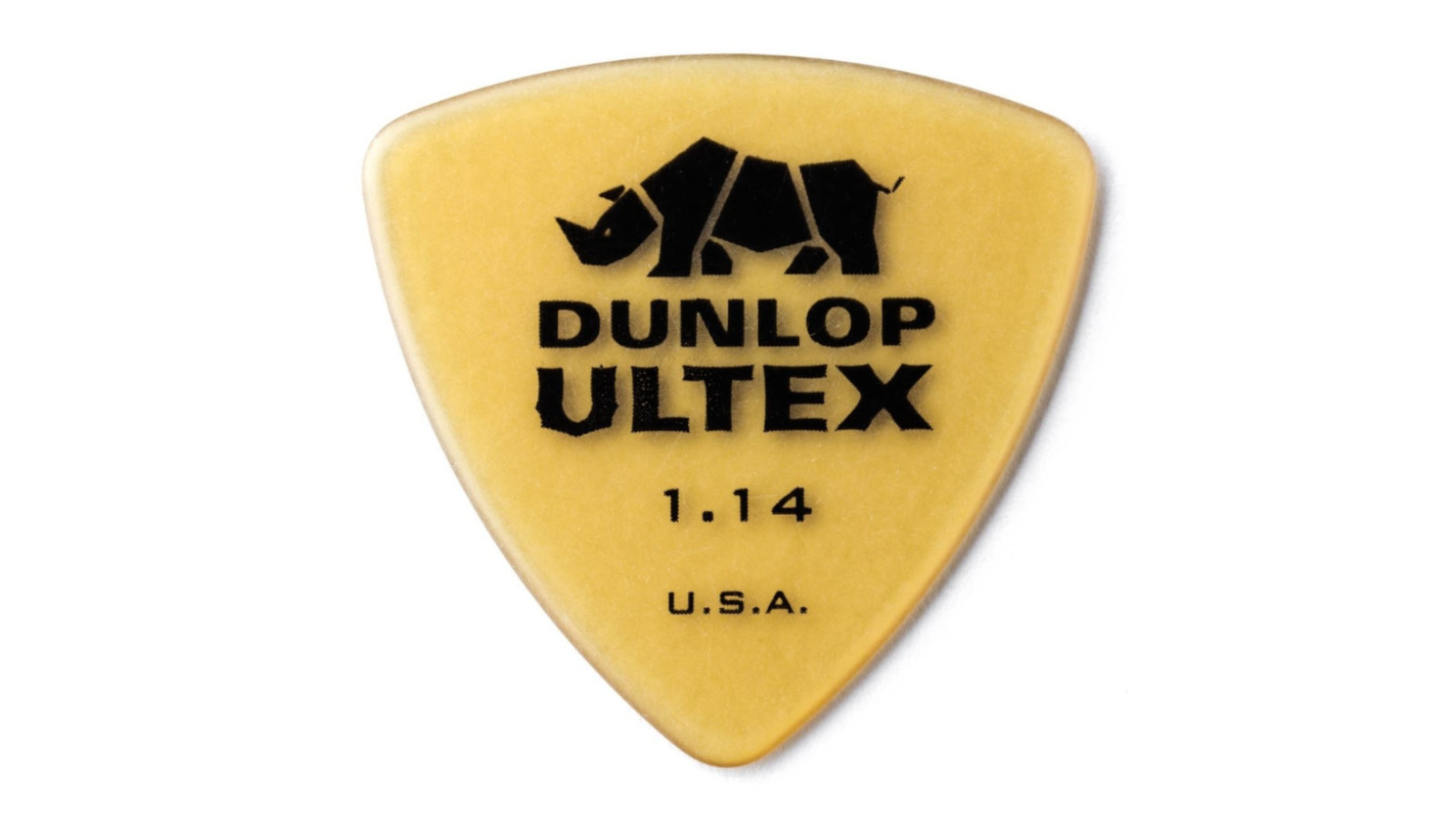
5. Dunlop 426 Ultex Triangle Pick 1.14mm
Our expert review:
Specifications
Reasons to buy
Reasons to avoid
Ultex picks are hard-wearing and reliable. They’ll also wield a bright and clear tone, allowing you to cut through a mix when you need to.
These Dunlop 426 picks are some of the best acoustic guitar picks for a variety of players. They’re bigger than a traditional guitar pick so they offer a larger surface area for your fingers and thumb, and for striking the strings.
If you’re one for big, bold strumming, then these are definitely worth experimenting with – they’re also some of the cheapest on this list, so it’s not a huge financial sacrifice to try them out.
Best thumb pick
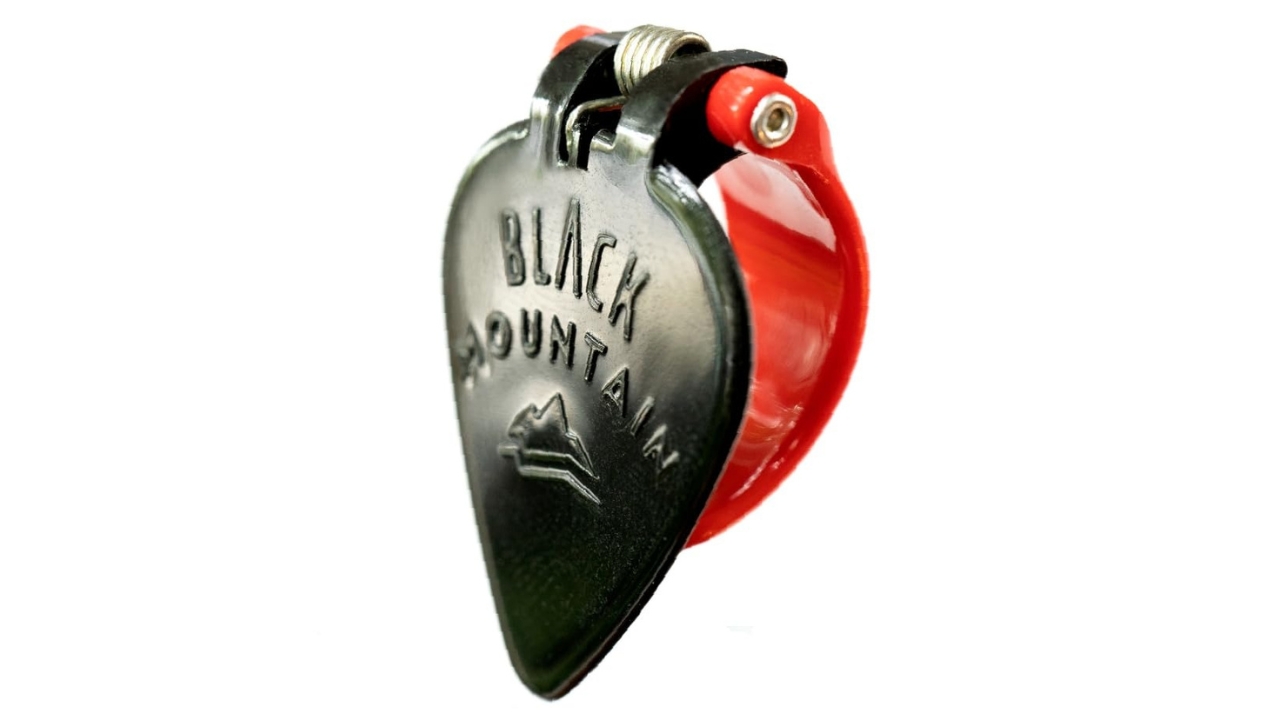
6. Black Mountain Thumb Picks
Our expert review:
Specifications
Reasons to buy
Reasons to avoid
Invented by guitar teacher Cole McBride, the Black Mountain Thumb Pick offers a new take on the classic acoustic guitar thumb pick. The adjustability has made it a hit, and it's available in lots of different varieties to suit any player or playing style.
Because it's spring-loaded, it'll fit a large variety of thumbs, and you can even specify what spring tension you want on the Black Mountain website. The varying tension means it can flex like a regular pick, giving you a great balance between comfort and stability.
I've been using one of these picks for a while now and although it took some getting used to, it's definitely a game changer if you feel a regular thumb pick isn't quite cutting it. The fact that it feels like a regular pick also makes it easier to get used to using one.
Also consider
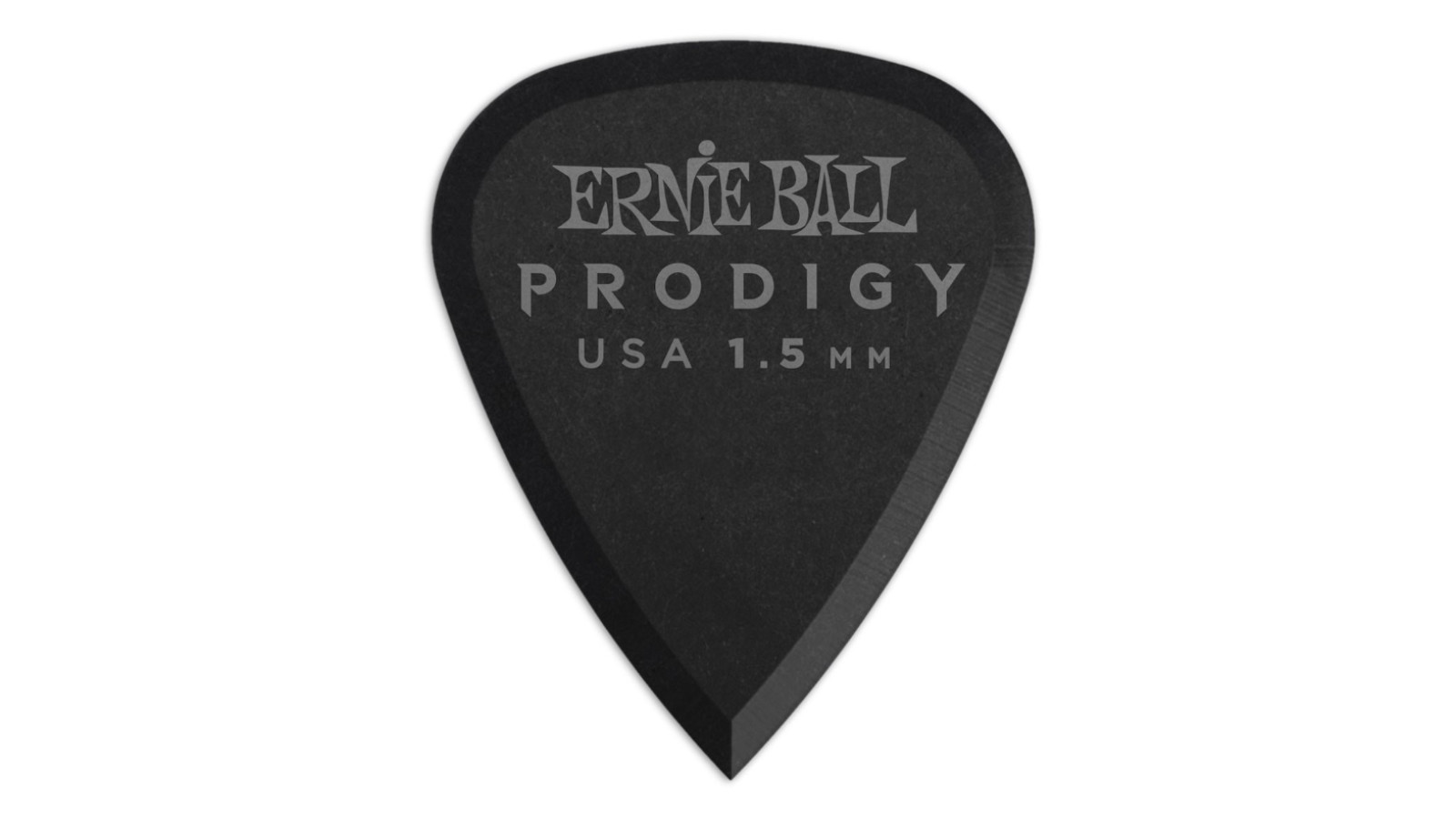
7. Ernie Ball Prodigy 1.5mm
Our expert review:
Specifications
Reasons to buy
Reasons to avoid
Here’s a cool pick from Ernie Ball that might be perfect for players that prioritize precision in their picking. It’s a classic pick shape with a sharper point to it, allowing you pick out individual strings easily. Of course, as with any pick, you can play a variety of styles with it.
The edges have quite a sharp bevel to them which helps you get a nice, crisp attack with lots of clarity and articulation. Combine this with the delrin material and you’ve got a pick that’s tonally balanced, but can help brighten up your sound. They also do a mini version which might appeal to Jazz III lovers.
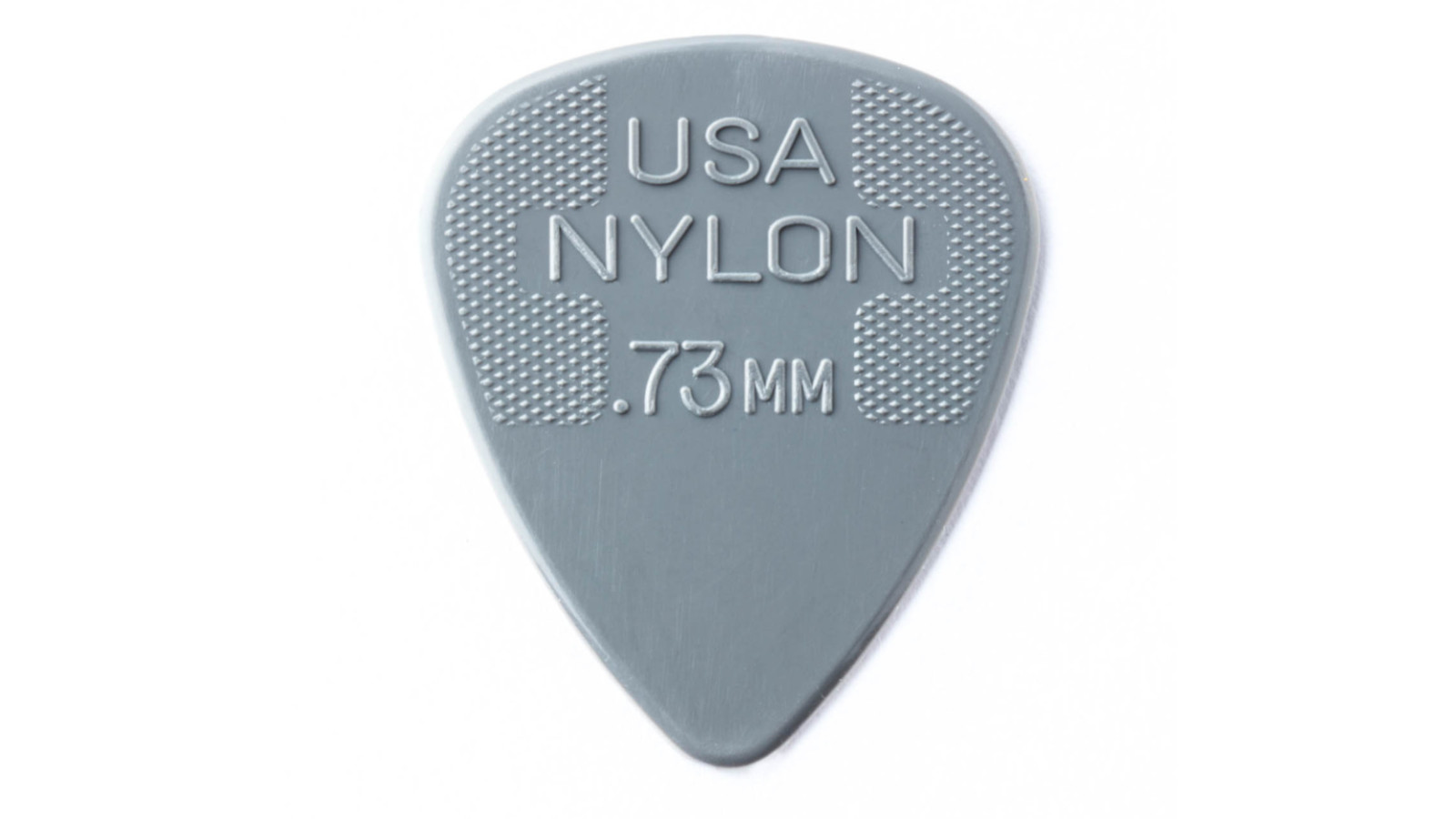
8. Jim Dunlop Nylon Standard .73mm
Our expert review:
Specifications
Reasons to buy
Reasons to avoid
These nylon picks are a real classic and can work wonders on acoustic guitars. If you like a softer, warmer and more vintage sound, then these could be for you. Of course, different thicknesses are available, but nylon tends to have a little more give in it than some other materials, so many rhythm players like how they work for strumming.
Of course, it’s all personal preference, so if you’re playing more melody and lead lines, nylon picks can still be a good choice; just remember you won’t quite get as much attack when you’re striking the individual strings. The design of them also gives the picks somewhat of a grip, which can really help too. They’re also very durable so they’ll give you some decent mileage over the years.
FAQs
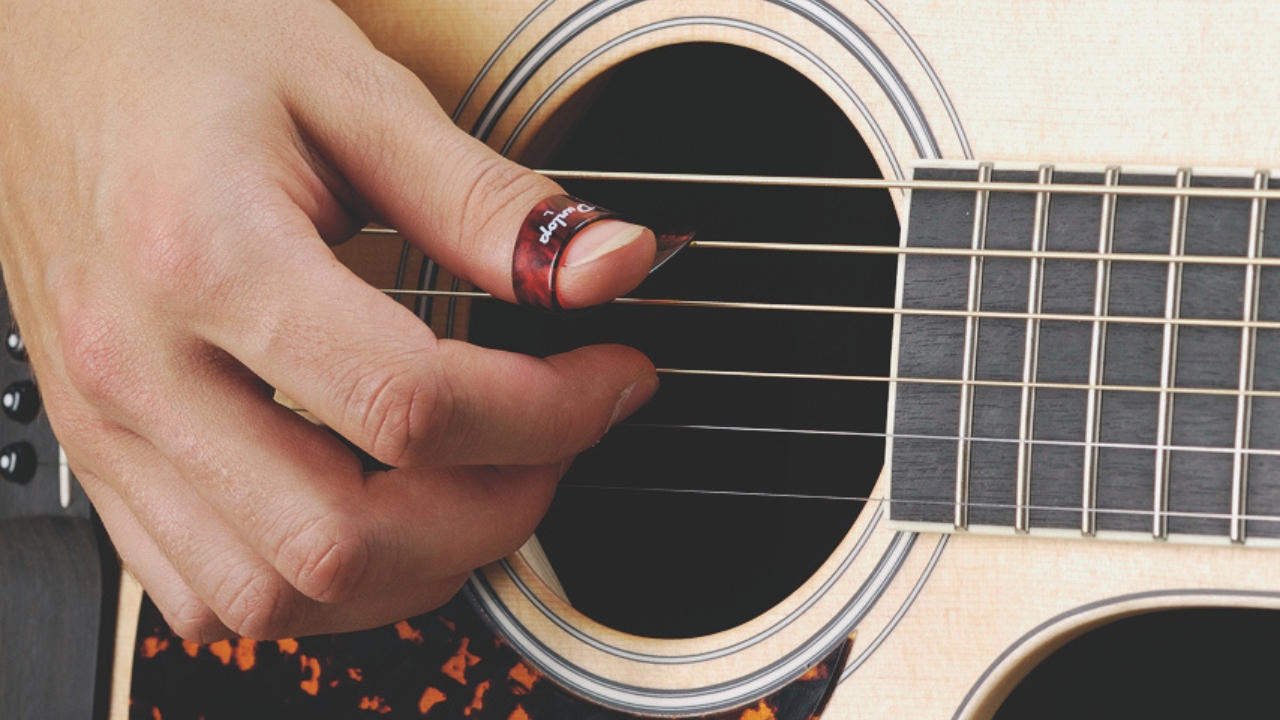
What thickness of pick should I use for an acoustic guitar?
The thickness of a pick can have an impact on tone, as well as feel. However, playing with something that you find uncomfortable will rarely yield good results. It’s useful to experiment with different sizes and thicknesses, but, if you’re struggling with something, then you don’t have to stick with it because someone on the internet says that it sounds good (including us!).
What kind of player you are might also help you choose your thickness. If you’re mostly playing chords, you might want something that has a bit of give in it so that the pick glides over the strings nicely. Conversely, lead players might prefer something stiffer so that they can attack the strings with more precision, and not accidentally follow through to other strings.
A thicker pick can help you get more volume out of an acoustic guitar, and thinner ones might help you control your dynamics a little better.
If you play a varied style or you’re not sure where to start, then you can go for something in the middle. With picks, there are so many out there, so it’s all about finding the sweet spot that works best for you.
Which material is best for an acoustic guitar pick?
The best acoustic guitar picks are made from lots of different materials. Picks made from materials such as Ultex and Delrin are usually quite bright sounding and can lend a nice, snappy attack to the notes. If you want a mellower tone, then other materials, including nylon and casein, can give you that. Celluloid picks are quite popular and sit roughly in the middle.
How much should I spend on an acoustic guitar pick?
Finding the best acoustic pick for you largely boils down to personal preference, so if you’re not sure what you’re after then you don’t need to go spending £/$25 or so just yet. You can get a variety of shapes, thicknesses and materials for around £/$1 per pick. It’s much better to try a few of these out and, by trial and error, see which ones work for you and which ones don’t – then you can start looking at the more premium picks.
Is it OK to play acoustic guitar without a pick?
Maybe the best acoustic guitar pick for you is no pick at all. Experiment just using your fingers, or a hybrid technique of both. At the end of the day, it’s all about what you find most comfortable, and what allows you to get the sound you’re after.
How we choose
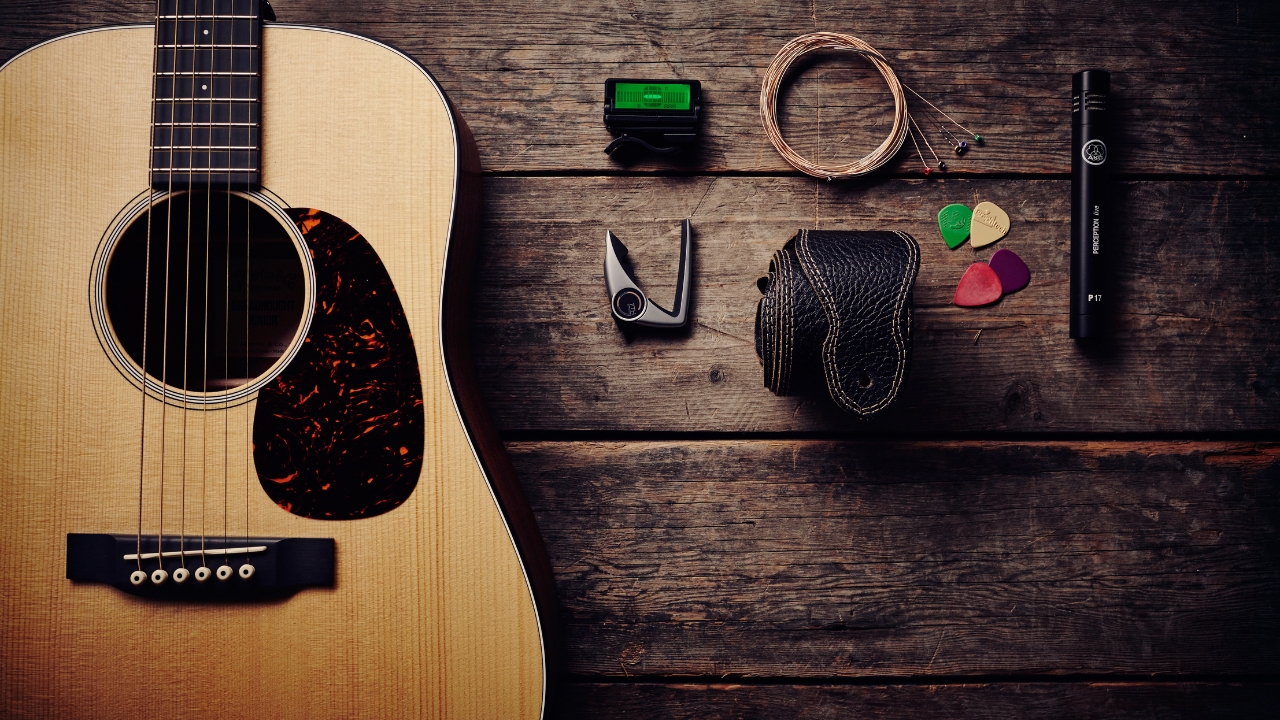
When choosing the best acoustic guitar picks, we're relying on decades of experience playing the acoustic guitar. Over the years our writing team here at Guitar World have tested a plethora of acoustic guitars, as well as playing them at shows all over the world.
We've got a lot of experience with the acoustic guitar and have tried more picks than we'd care to remember. So when we recommend a pick for you, we're doing so from actual lived experience. We'd only select a pick we'd use ourselves, so you can rest assured that our choices will do a great job for you.
The picks in this guide will cover a multitude of different players and playing styles, as our team has a huge variety of players. So whether you're looking for a thin pick, a thick pick, or even a thumb pick, our selection has got your back.
Read more:
You can trust Guitar World
- Get started with the best acoustic guitars for beginners
- Save money with the best acoustic guitars under $500
- The best classical guitars are great for fingerstyle
Get The Pick Newsletter
All the latest guitar news, interviews, lessons, reviews, deals and more, direct to your inbox!
After spending a decade in music retail, I’m now a freelance writer for Guitar World, MusicRadar, Guitar Player and Reverb, specialising in electric and acoustic guitars, bass, and almost anything else you can make a tune with. When my head’s not buried in the best of modern and vintage gear, I run a small company helping musicians with songwriting, production and performance, and I play bass in an alt-rock band.
- Matt McCrackenJunior Deals Writer
“Takes the tactile and tonal experience of our Tortex Flex Picks line to a whole new level of performance”: Dunlop launches its first-ever Tortex pick with a grip – guaranteeing “ultimate playability”
“Allow you to focus on your technique rather than trying to hold onto the pick”: Bog Street Picks review










